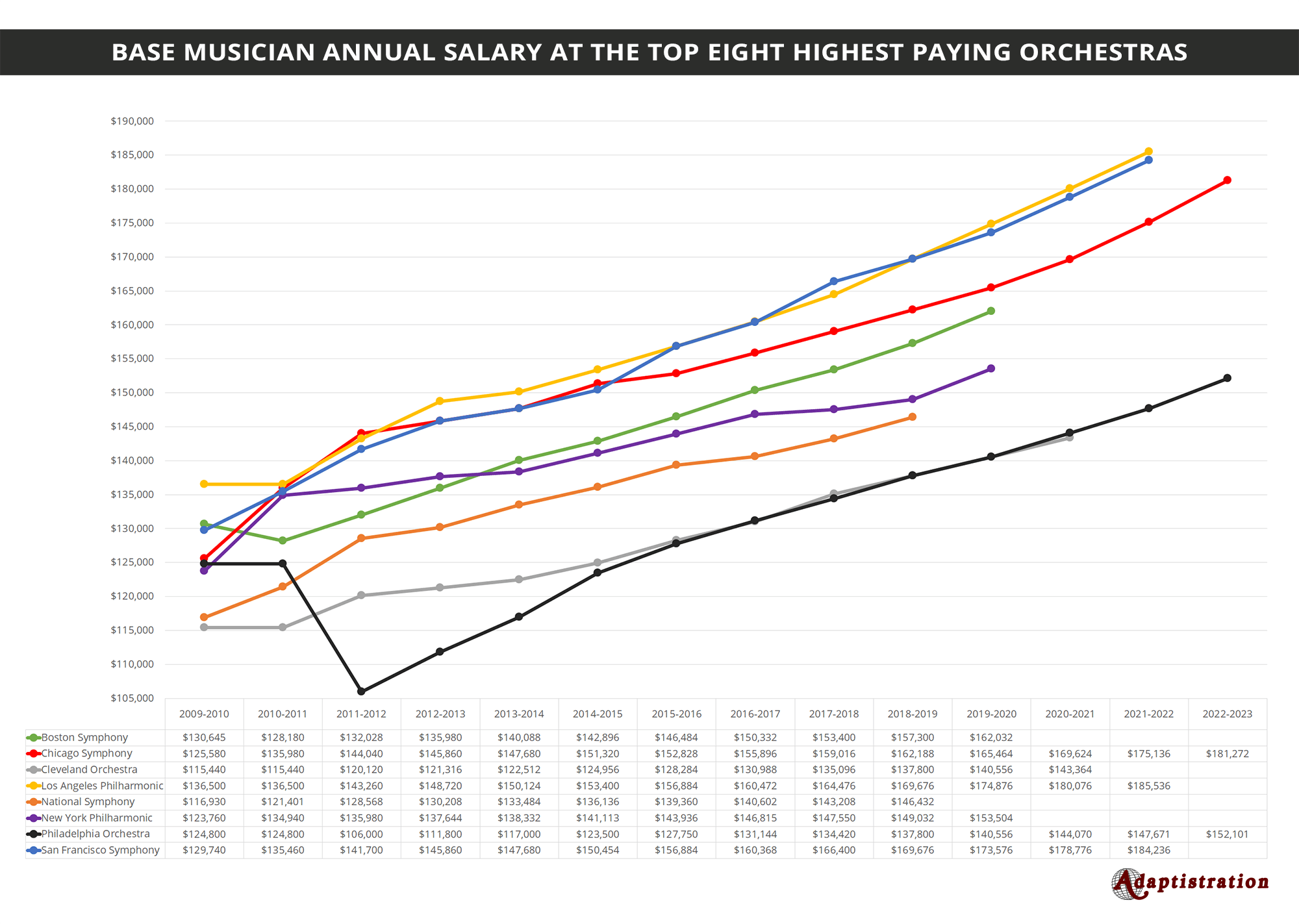It’s time to revisit base musician compensation levels at the top eight highest paying orchestras.
For a number of these orchestras, the 2018/19 season marks the end of their existing collective bargaining agreement (CBA). In each of those instances, the outcomes will have a large impact on what many orchestra musicians consider their organization’s ability to compete for the best on-stage talent.
We’ve been tracking these values since the 2009/10 season and at the time this installment was published, one orchestra, the Chicago Symphony Orchestra (CSO), endured a two-month work stoppage over disagreements on base musician compensation and pension.
When the dust settled, even though the CSO neither lost nor gained any ground over historical rates of increases, they lost their defined benefit pension for incoming musicians.
Consequently, this will put the organization in a far less competitive position compared to their closest base musician compensation peers in New York and Boston. Compared to all eight orchestras in this list, the CSO is now likely closer in total compensation value to Cleveland and Philadelphia, both of which removed their defined benefit pension for incoming musicians several years prior.

2108 Questions With 2019 Answers
Here are the items from the 2018 overview we wanted to keep an eye on.
- 2018 Question: Would Philadelphia Orchestra could keep up with Cleveland Orchestra’s planned increases.
Answer: Yes. - 2018 Question: National Symphony Orchestra (NSO) would manage to match, or overtake, base compensation rates at the New York Philharmonic.
Answer: Unknown, the NSO’s figures are TBD. - 2018 Question: Would any clear leader emerge in the west coast battle between Los Angeles Philharmonic and San Francisco Symphony (SFS).
Answer: the LA Phil has managed to secure a small, but constant, lead. - 2018 Question: If New York Philharmonic and Boston Symphony would maintain near-parallel rate of increases.
Answer: TBD
Questions for 2019
- Where will the NSO fall in the grand scheme of things?
This orchestra has become the real spoiler when it comes to competitive benchmarks for artistic talent. Their base musician salary continues to climb at a higher rate than their immediate peers. While the NSO has been sneaking up on the New York Philharmonic’s base compensation rate, they are more of a direct threat to Chicago now that the latter group jettisoned the defined benefit pension plan. It would be fascinating to do a financial comparison on the total compensation between the NSO and CSO as the former’s defined pension benefit plan will place a heavy thumb on the scales. In fact, it wouldn’t be surprising to see them eek ahead of the CSO. - Will the Boston Symphony leap ahead of the Chicago Symphony?
Much like the point above via the NSO, even if Boston stays slightly below Chicago’s base musician rate, so long as they keep their defined benefit pension plan, they will all but certainly have a higher total compensation package. - What will happen with the New York Philharmonic?
In the most recent negotiation, New York came dangerously close to a labor dispute over their pension and base musician salary rates. This time around, they have a new CEO so it’s anybody’s guess on whether that will have any impact on those terms in their impending agreement.
What are you curious to know?


